Navigating a mental health crisis can be overwhelming, both for the individual experiencing it and their loved ones. It's crucial to have a clear intervention plan in place that prioritizes empathy and understanding. This letter aims to outline the essential steps involved in the mental health crisis intervention process, providing guidance on how to best support those in need. So, let's dive in and explore these important strategies together!
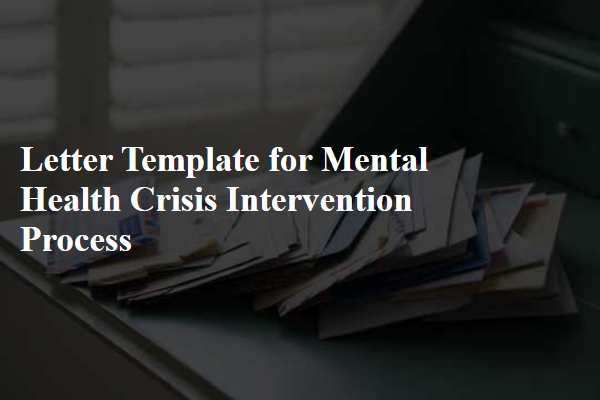
Acknowledgment of the individual's current mental state.
In a mental health crisis intervention, recognizing the individual's current mental state is paramount for effective support. Symptoms such as anxiety, depression, or overwhelming stress can manifest, leading to feelings of hopelessness. This acknowledgment serves as the foundation for understanding their emotional landscape. The individual's specific experiences, whether stemming from recent traumatic events or ongoing struggles, need validation. Creating a safe space for dialogue encourages openness, which is vital for identifying appropriate interventions. Support systems--friends, family, or professionals--play a critical role in providing reassurance and comfort during this challenging time. Implementing tailored coping strategies or professional services, such as counseling or therapy, can significantly aid recovery and emotional stabilization.
Details of available support and resources.
Mental health crisis intervention processes involve various support services and resources aimed at providing immediate assistance to individuals experiencing mental health emergencies. The National Suicide Prevention Lifeline, reachable at 1-800-273-8255, offers 24/7 crisis counseling and support. Local emergency services (dial 911 in the United States) can dispatch professional help within minutes for urgent situations. Community mental health centers, such as those operated by organizations like SAMHSA, provide outpatient services, including therapy and crisis stabilization units. Schools often have in-house counselors or partnerships with local clinics, ensuring accessible support for students. Online resources, including mental health apps like Talkspace or BetterHelp, facilitate remote therapy sessions. Support groups, both in-person and virtual, foster community connections, offering peer support in navigating mental health challenges.
Contact information for immediate help or crisis lines.
In mental health crisis situations, immediate access to support is crucial. The National Suicide Prevention Lifeline, reachable at 1-800-273-TALK (8255), provides 24/7 confidential support for individuals in distress. The Crisis Text Line, available by texting "HOME" to 741741, offers real-time communication with trained crisis counselors, ensuring assistance at any moment. Local emergency services, such as 911 in the United States, can dispatch immediate help for life-threatening situations. Additionally, resources like SAMHSA's National Helpline at 1-800-662-HELP (4357) can connect individuals with treatment options and local services tailored to their needs, acting as a vital lifeline during pressing mental health emergencies.
Steps for follow-up and ongoing support.
Effective mental health crisis intervention requires a structured follow-up process to ensure ongoing support for individuals experiencing distress. Initial assessment should take place within the first 48 hours post-crisis, involving a trained mental health professional who can evaluate the individual's immediate needs. Within this timeframe, establishing a safety plan is crucial, outlining identifying warning signs, coping strategies, and emergency contacts. Scheduled follow-up appointments should be arranged, ideally within the first week, to monitor progress and provide therapeutic support. Additionally, providing access to support groups or community resources, such as local mental health organizations in urban areas like New York City or Los Angeles, can foster a sense of belonging and reduce isolation. Regular check-ins via phone calls or messages within the subsequent months help maintain connection and encourage open communication about feelings and experiences. Empowering individuals through education, such as workshops on resilience and coping mechanisms, further equips them with tools to manage future challenges effectively.
Encouragement of seeking professional assistance.
In times of mental health crises, seeking professional assistance is crucial for recovery and emotional stability. Trained mental health professionals, such as psychologists and licensed counselors, can provide tailored therapeutic strategies that address individual needs. Immediate help can often be accessed through mental health hotlines like the National Suicide Prevention Lifeline (1-800-273-TALK), which offers 24/7 support. Emergency rooms also serve as critical points for intervention, where medical personnel can assess acute mental health concerns. Engaging in peer support groups or therapy sessions--such as Cognitive Behavioral Therapy (CBT)--can significantly enhance coping mechanisms. Remember, reaching out for help is a sign of strength, not weakness, and has proven to lead to improved mental well-being.
Letter Template For Mental Health Crisis Intervention Process Samples
Letter template of immediate support request for mental health crisis intervention.
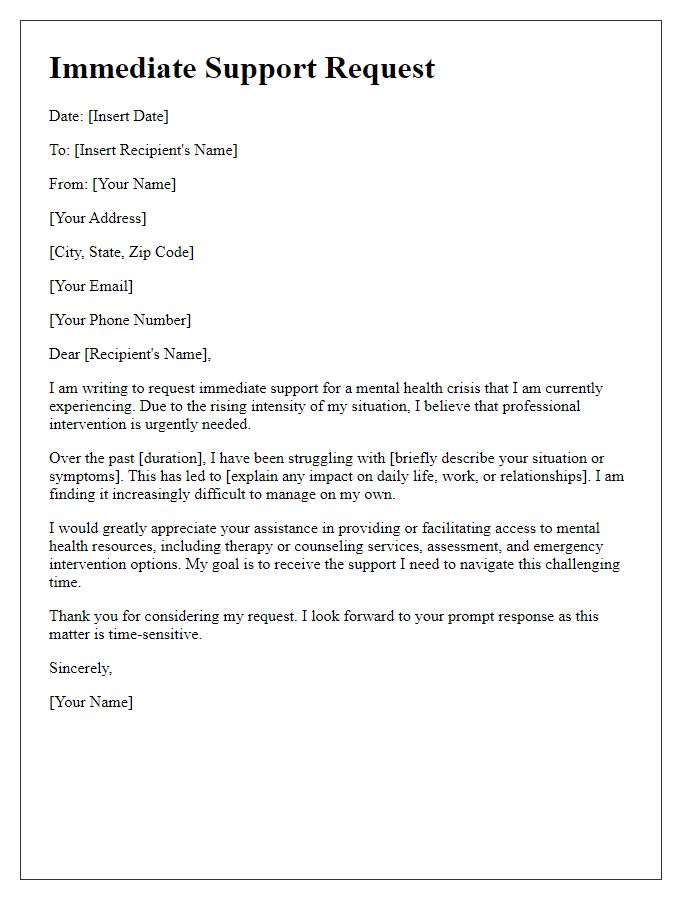
Letter template of information gathering for mental health intervention.
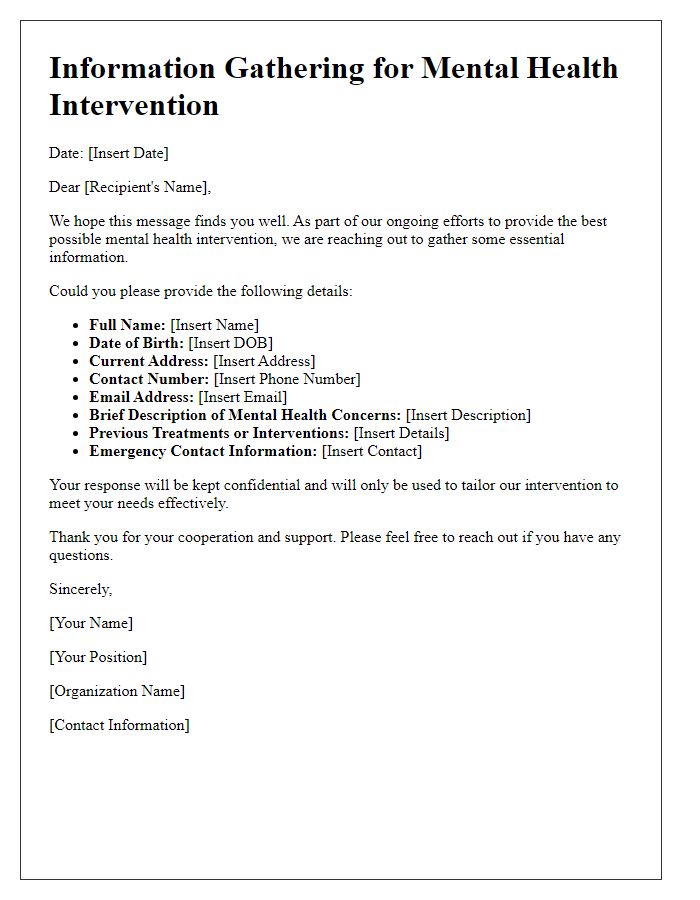
Letter template of collaboration proposal for mental health crisis management.
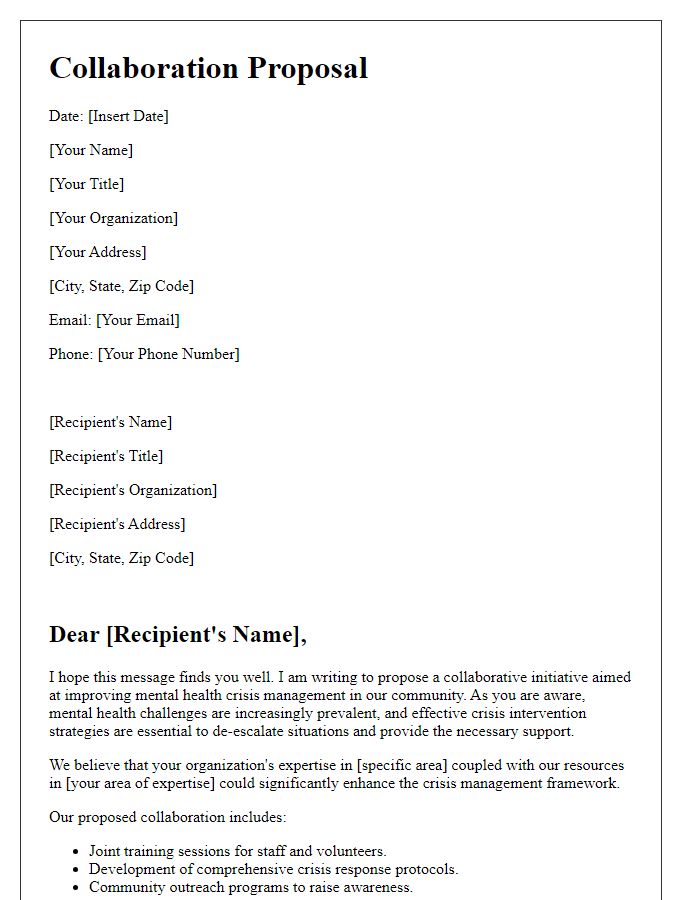
Letter template of confidentiality assurance in mental health intervention.
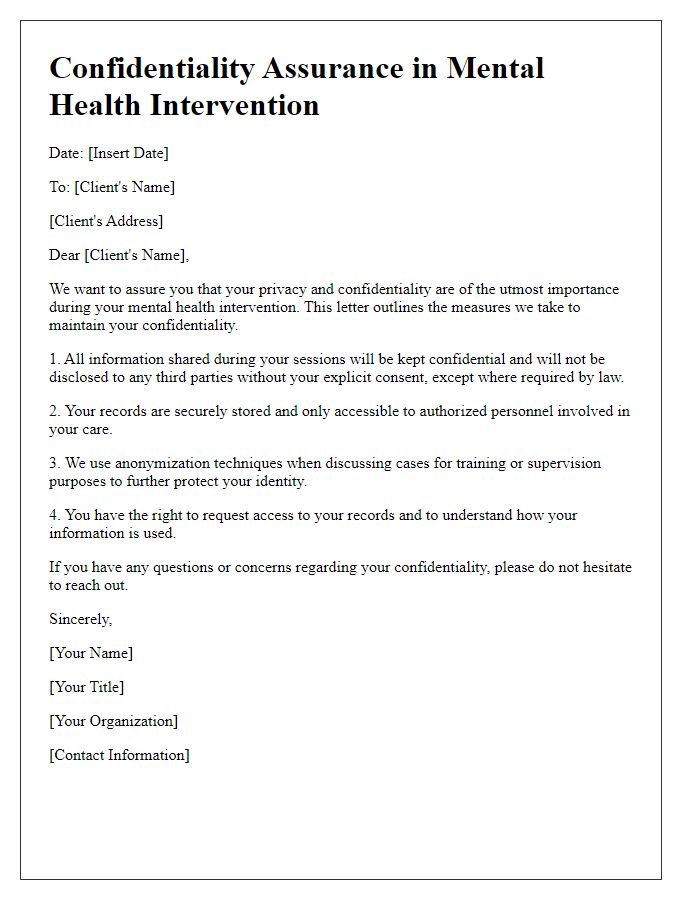
Letter template of resources and support options for mental health crises.
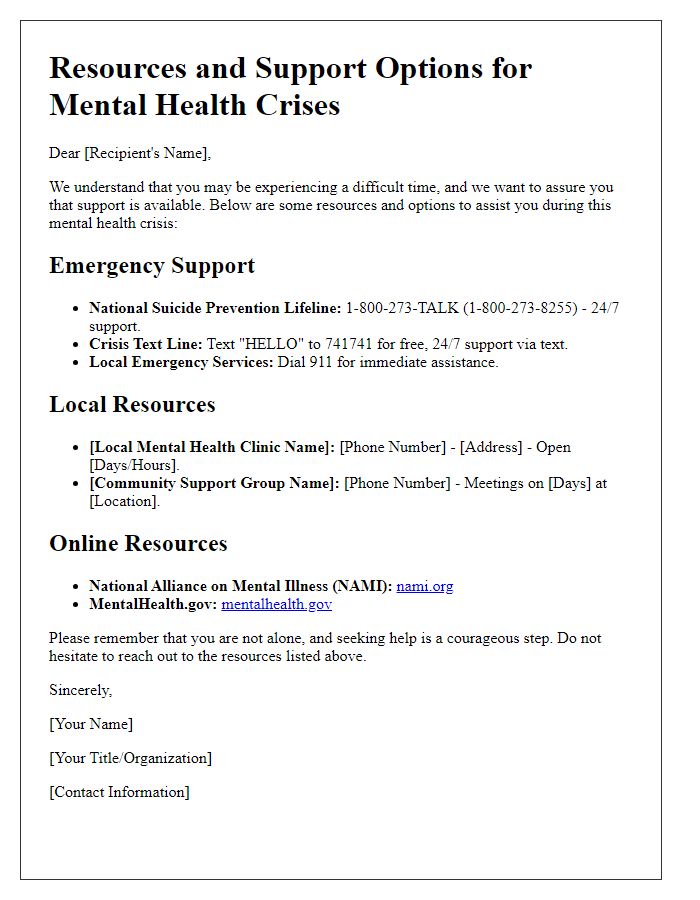
Letter template of consent form for mental health intervention services.
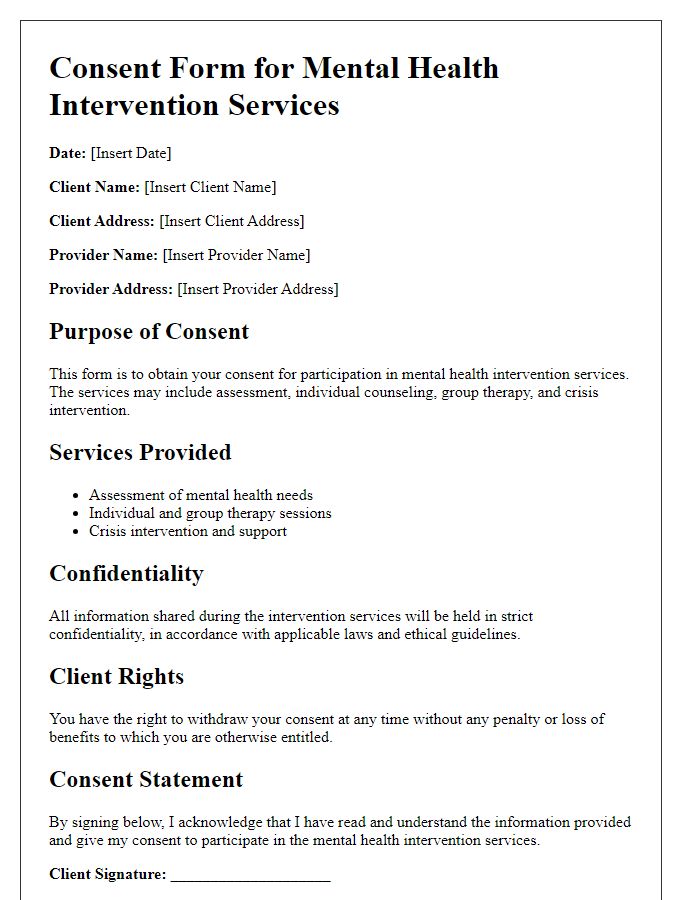
Letter template of family involvement invitation in mental health crisis response.
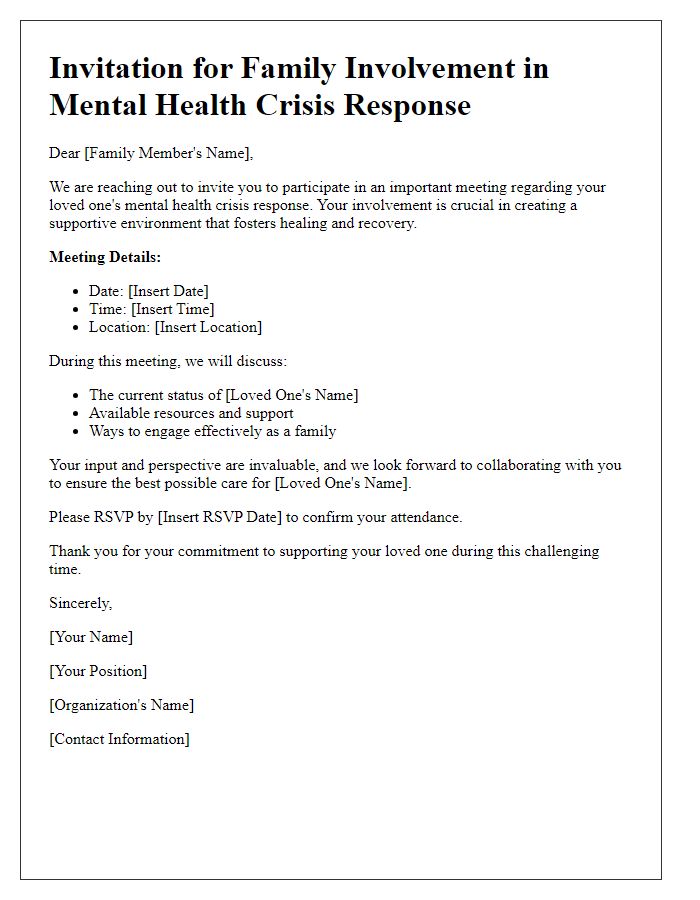

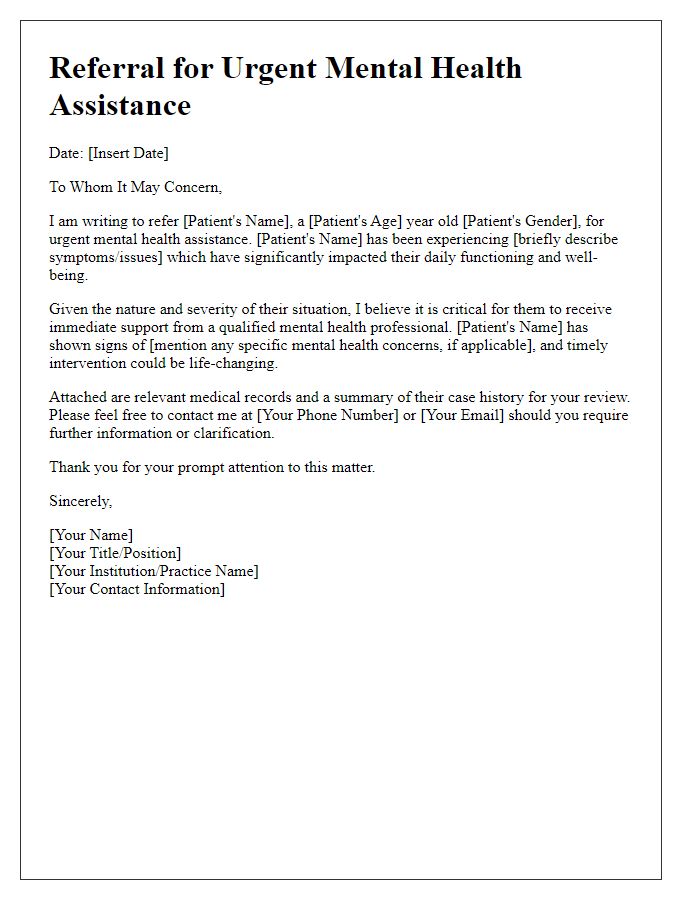
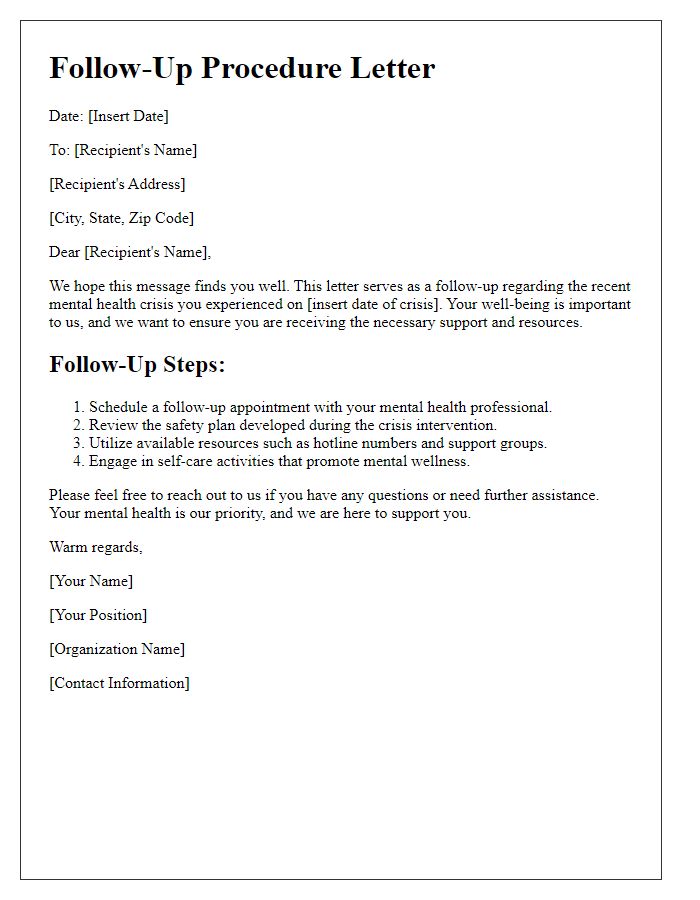
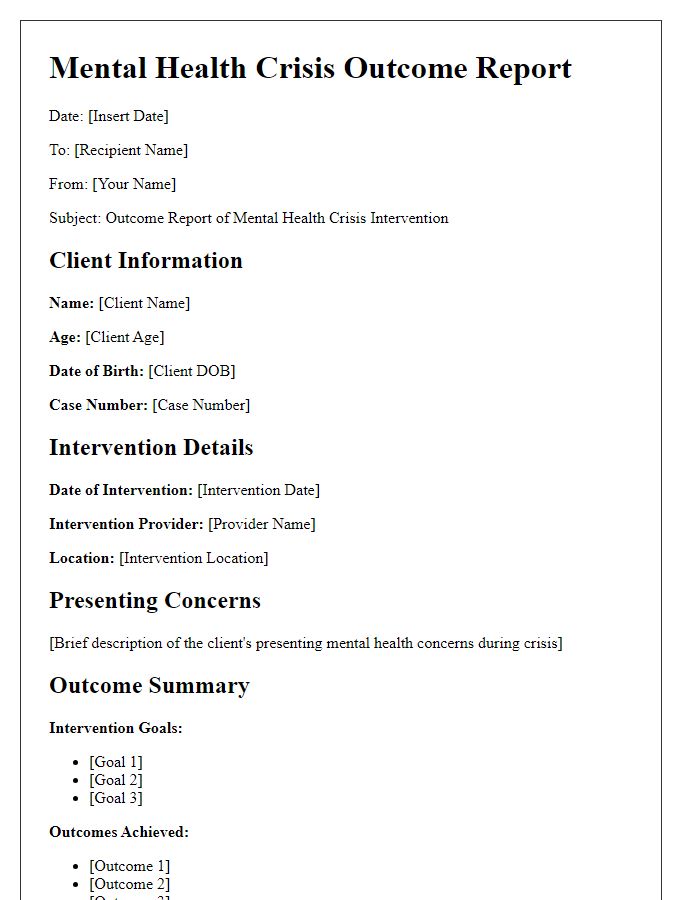

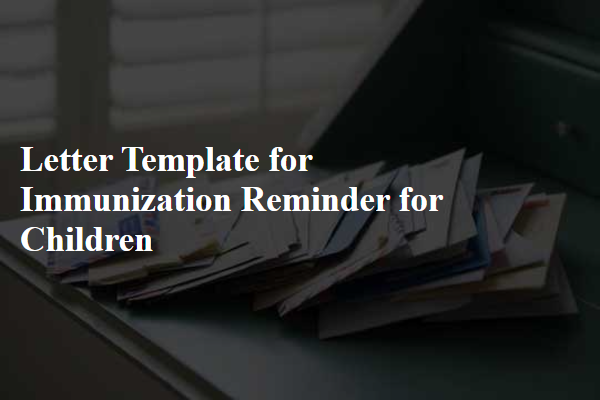
Comments